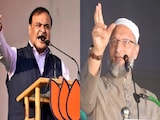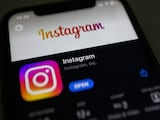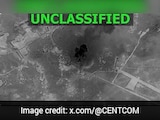The United States is preparing to impose sanctions on at least a dozen Chinese officials over their alleged role in Beijing's disqualification of elected opposition legislators in Hong Kong, according to three sources, including a U.S. official familiar with the matter.
The move, which could come as soon as Monday, will target officials from the Chinese Communist Party (CCP) as President Donald Trump's administration keeps up pressure on Beijing in his final weeks in office. President-elect Joe Biden takes over on January 20.
The State Department and the White House did not immediately respond to requests for comment.
Up to 14 people, including officials of China's parliament, or National People's Congress, and members of the CCP, would likely be targeted by measures such as asset freezes and financial sanctions, two sources said.
The U.S. official, speaking on the condition of anonymity, said multiple individuals would be sanctioned. A person familiar with the matter said the group would likely include officials from Hong Kong as well as the mainland. The sources did not provide names or positions of those being targeted for sanctions. Two sources cautioned an announcement could still be delayed until later in the week.
Hong Kong's Beijing-backed government last month expelled four opposition members from its legislature after China's parliament gave city authorities new powers to curb dissent. The move triggered mass resignations by pro-democracy opposition lawmakers in the former British colony.
It also raised further alarm in the West. The Five Eyes intelligence-sharing group - made up of Australia, Britain, Canada, New Zealand and the United States - said last month the move appeared to be part of a campaign to silence critics and called on Beijing to reverse course.
White House national security adviser Robert O'Brien said in November the expulsion showed the "One Country, Two Systems" formula, under which Hong Kong's autonomy had been promised since Britain handed the territory back to China in 1997, was now "merely a fig leaf" and promised further U.S. action.
In October, the U.S. State Department warned international financial institutions doing business with individuals deemed responsible for China's crackdown in the Asian financial hub that they could soon face tough sanctions.
Washington has already put sanctions on Hong Kong Chief Executive Carrie Lam, the territory's current and former police chiefs and other top officials in August for what it said was their role in curtailing freedoms in a crackdown on the territory's pro-democracy movement.
In November, the State Department and Treasury Department imposed sanctions on four more Chinese officials in Hong Kong's government and security establishment, barring them from traveling to the United States and blocking any U.S.-related assets they might have.
Beijing has previously condemned U.S. sanctions related to Hong Kong, calling it interference in China's internal affairs.
Hong Kong is expected to be one of Biden's thorniest challenges with China, which will be high on his foreign policy agenda with relations between Washington and Beijing at the lowest point in decades over an array of disputes.
Biden has promised to take a tougher line than Trump over human rights in China and other countries, so his response to the crackdown in Hong Kong could be an early test of that resolve.
(Except for the headline, this story has not been edited by NDTV staff and is published from a syndicated feed.)















